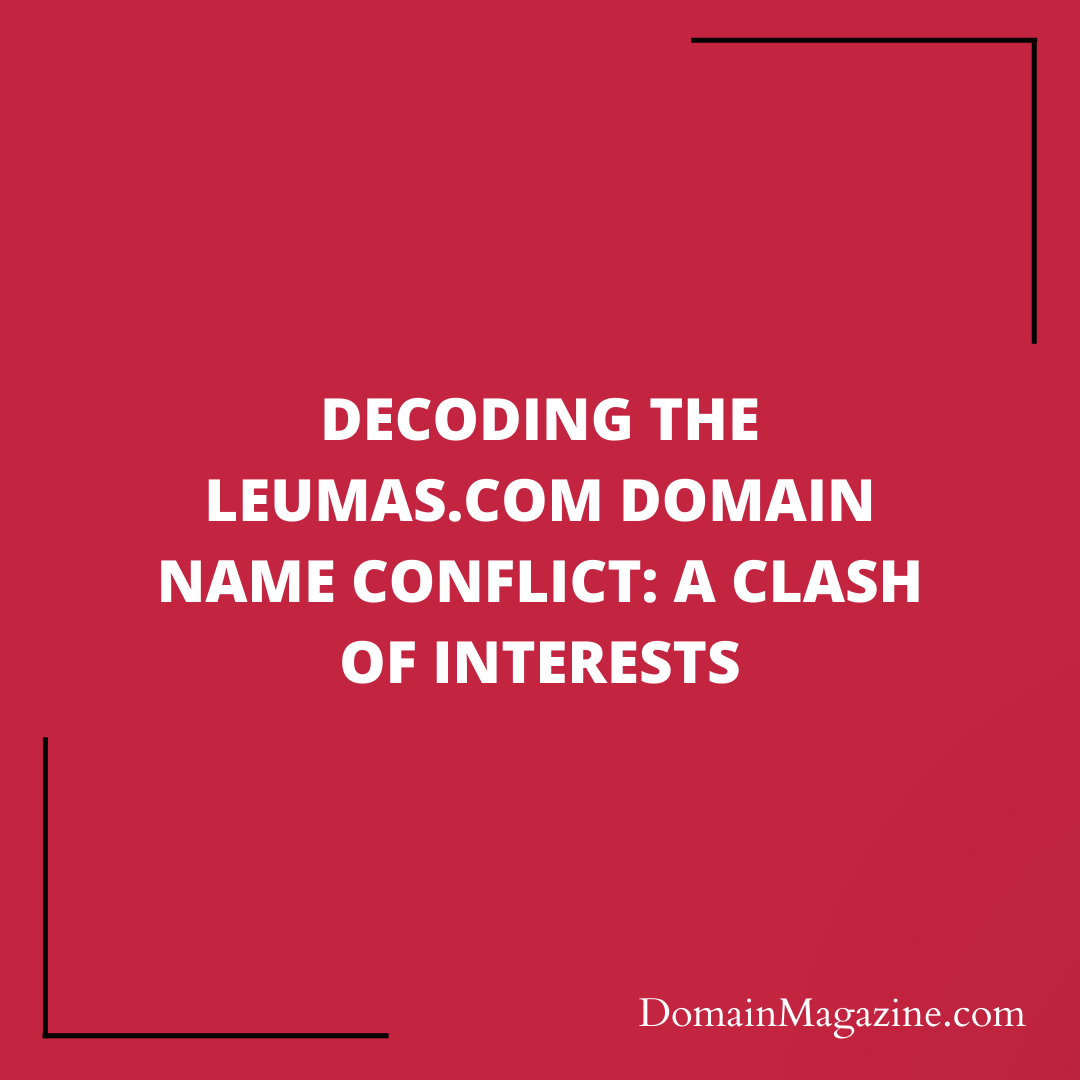In the world of websites and the internet, domain names play a crucial role in identifying and accessing different online platforms. But what happens when two parties claim ownership of the same domain name? In this article, we delve into a real-life case of a disputed domain name and explore the concepts of trademark rights, bad faith registration, and legitimate use.
The Case: Leumas.com
In this case, a company referred to as the Complainant is an investment services company that has been using the LEUMAS mark since 1998. They own the rights to the LEUMAS mark through a trademark registration with the USPTO (United States Patent and Trademark Office). On the other hand, the Respondent registered the domain name leumas.com on November 12, 2002.
The Complainant’s Allegations
The Complainant alleges that the Respondent registered and used the disputed domain name in bad faith. They claim that the Respondent never actively used the domain name and merely displayed advertising hyperlinks on the resolving webpage.
The Respondent’s Defense
The Respondent’s principal, Samuel, explains that the domain name was chosen by reversing the letters of his middle name. The Respondent, Leumas Advisors LLC, was inactive to avoid any conflict of interest with Samuel’s work as a pensions funds analyst with the Office of the Connecticut State Treasurer. The Respondent contends that they use the domain name for email service and, therefore, have legitimate interests in its use.
The Panel’s Decision
After evaluating the evidence presented by both parties, the Panel came to the following conclusions:
- Legitimate Interests: The Panel found that the Respondent’s use of the domain name for email services constituted sufficient evidence of their legitimate interests in the domain name. This legitimate use predates the Complainant’s trademark registration.
- Bad Faith Registration: The Panel noted that the disputed domain name was registered more than 15 years before the Complainant’s trademark registration. Additionally, there was no evidence of any common law rights in the name LEUMAS before the domain name registration. Therefore, the Panel concluded that the Complainant could not prove bad faith registration.
- Harassment: The Panel found that the Complainant had harassed the Respondent by persistently attempting to purchase the domain name, despite the Respondent’s clear statement that it was not for sale.
- Reverse Domain Name Hijacking (RDNH): The Panel deemed this case as a classic example of RDNH. The Complainant initiated the proceedings after unsuccessful attempts to purchase the domain name, misrepresenting the facts and failing to mention their communications to the Respondent.
Conclusion
The disputed domain name case of leumas.com highlights the importance of understanding trademark rights, legitimate interests, and bad faith registration in the domain name space. The Panel’s decision in favor of the Respondent reinforces the principle that domain names should not be hijacked through improper means.
As individuals and businesses continue to establish their online presence, it is essential to be aware of the legal implications and potential conflicts that may arise concerning domain names. Transparency, fair practices, and adherence to intellectual property rights are essential in ensuring a harmonious digital landscape.
Read the case in detail here: https://www.adrforum.com/DomainDecisions/2048740.htm


Join the Discussion